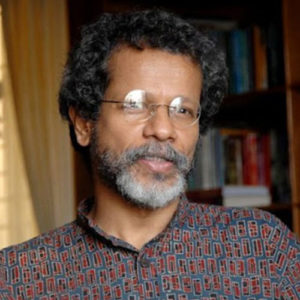
Session 7: COSTS AND CHALLENGES OF DEVELOPMENT
Thursday, Dec 9, 2021 | 6:00pm – 7:45pm | Bangladesh Time (GMT+6)

Professor Imtiaz Ahmad
Professor, Department of International Relations, Dhaka University
Paper Title – Bangladesh in a Changing World Order: Responding to Changing Geopolitics
Abstract:
Humans create geopolitics; geopolitics does not create humans. This is precisely the reason why Nazim Hikmet, the Turkish poet, could say that “Brother, just wait… /As long as I’ve got / honey in my pot, / bees will come to it / from Timbuktu….” Indeed, what attracted the European colonizers to enter South Asia through Bengal was the ‘honey’ the latter seemed to have in the 18th century. One may point out that in the 18th century, China was the largest economy in the world, while undivided India was the second-largest, and Bengal was the wealthiest province in the sub-continent. However, British colonialism soon deindustrialized and impoverished Bengal, indeed, to the extent that the latter suffered a famine, which killed 3.5 to 5 million people just a few years before the British left the sub-continent. On top of this, Bengal got cartographically massacred into east and west in 1947, with the eastern wing becoming a part of Pakistan while the western wing joined post-colonial India. The east wing then fought for independence from Pakistan, but following its independence in 1971, the new country, now Bangladesh, while being called ‘bottomless basket,’ became unimportant and geopolitically insignificant.
Things, however, began to change, first, with decolonization, and second, with globalization. The Asian economies started to resurface, and particularly with the re-rise of China, the global economy saw a relative shift from Europe and the West to Asia and the East. With a promise of more ‘honey’ getting reproduced in the latter, geopolitics could not help changing, which saw even South Asia, including Bangladesh, getting a renewed attention compared to the previous two centuries. In fact, despite being a product of cartographical massacre, Bangladesh seems to have done relatively well since 1971. Grounds, however, were laid down at the very beginning of Bangladesh’s independence when the Father of the Nation declared that the foreign policy principle of Bangladesh would be “friendship to all and malice towards none.” But what is surprising is that when Bangladesh outlined the principle, it had far fewer friends than it has now globally.
Bangladesh, however, remained true to its commitment and joined all kinds of regional and international organizations, SAARC, IORA, BIMSTEC, BCIM, BIN, and BBIN, although some of them had members who were hardly comfortable with one another. Bangladesh went even further and joined the two most significant, almost opposing, alliances or groupings in the post-Cold War era: the Indo-Pacific Alliance (IPA), led by the US, and the Belt Road Initiative (BRI), led by China. If anything, ‘not having enemies’ or ‘friendship towards all’ is what had led to Bangladesh having an economic growth of over 6 percent in the last two decades, a life expectancy of 72 years, and poverty reduced from 44.2 percent in 1991 to below 20.5 percent in 2019. Indeed, this ‘growth without enmity’ has the potential to make Bangladesh a developed country by 2041. In this quest, the changing geopolitics is bound to come in handy despite the contestations between India and China and China and the United States. This is because Bangladesh’s relationship with them is based on economic merit and not siding with one against the other.
The paper will highlight the above contention in some detail.
 +(88 02) 55001185
+(88 02) 55001185 
